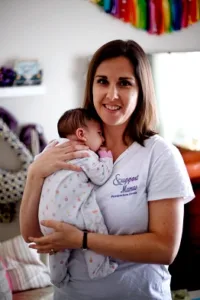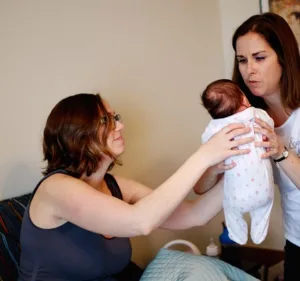Navigating the Complex Landscape of Grief

Grief is a powerful and universal emotion that touches each of us in big and small ways. It’s a feeling that can’t be underestimated in its depth and complexity. It doesn’t always arrive at our doorstep in the same form. In fact, grief comes in many forms. As you navigate the complex nature of grief processing, it can help to keep a few things in mind.
The Physical Side of Grief: Understanding Your Body's Response
When we grieve, we experience emotions as physical sensations in our bodies. People often report physical sensations of grief, which can range from body aches to chest pressure. These physical symptoms can be alarming, sometimes it feels like a heart attack, sometimes a panic attack. It’s all normal, when facing immense grief.
The connection between our brains and bodies is most obvious during grief. When we experience grief, our bodies release stress hormones like cortisol, triggering the “fight or flight” response. This can manifest as muscle tension, fatigue, headaches, and a heavy sensation in the chest.
Grief Beyond Death: The End of Chapters
While we often associate grief with the loss of a loved one, it’s important to recognize that grief can manifest in various ways. It can emerge when a cherished relationship ends. We can experience it when we lose a job. Grief can even show up when we close the door on a significant phase of our lives, like moving. It is not limited to death; it’s the emotional response to any significant loss or change. Grief processing is an ever-present part of every person on the planet.
Incorporating Grief into Life: The Road to Healing
 Grief is not something that we simply “move on” from. Instead, it becomes a part of us, woven into the fabric of our lives. This is a critical point to remember when navigating the journey of grief. The notion of “moving on” can often feel daunting and unattainable, especially in the early stages of grief.
Grief is not something that we simply “move on” from. Instead, it becomes a part of us, woven into the fabric of our lives. This is a critical point to remember when navigating the journey of grief. The notion of “moving on” can often feel daunting and unattainable, especially in the early stages of grief.
Instead, consider the idea of incorporating the loss into your life. As you move forward, you carry the memory and lessons from your grief with you. It becomes a part of your personal narrative, shaping your perspective, values, and priorities. It doesn’t mean you forget or replace what you’ve lost, but rather, you learn to live with the absence and find ways to honor and cherish the memories.
Grief is a deeply personal journey, and it’s crucial to acknowledge its many forms and the physical toll it can take on our bodies. By understanding that healing doesn’t mean erasing the pain but rather integrating it into your life, you can begin to navigate the complexities of grief with greater resilience and self-compassion. Whether your grief arises from the loss of a loved one or the end of a significant chapter in your life, remember that you’re not alone, and there’s no right or wrong way to grieve. Mental health therapy can be an essential part of the grief processing, learn more about my approach here.
